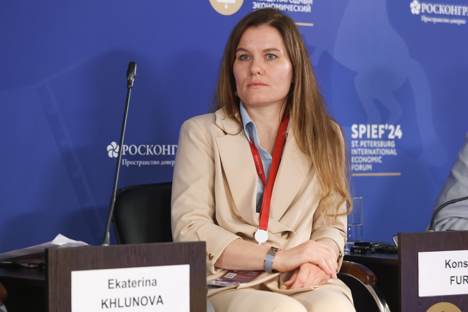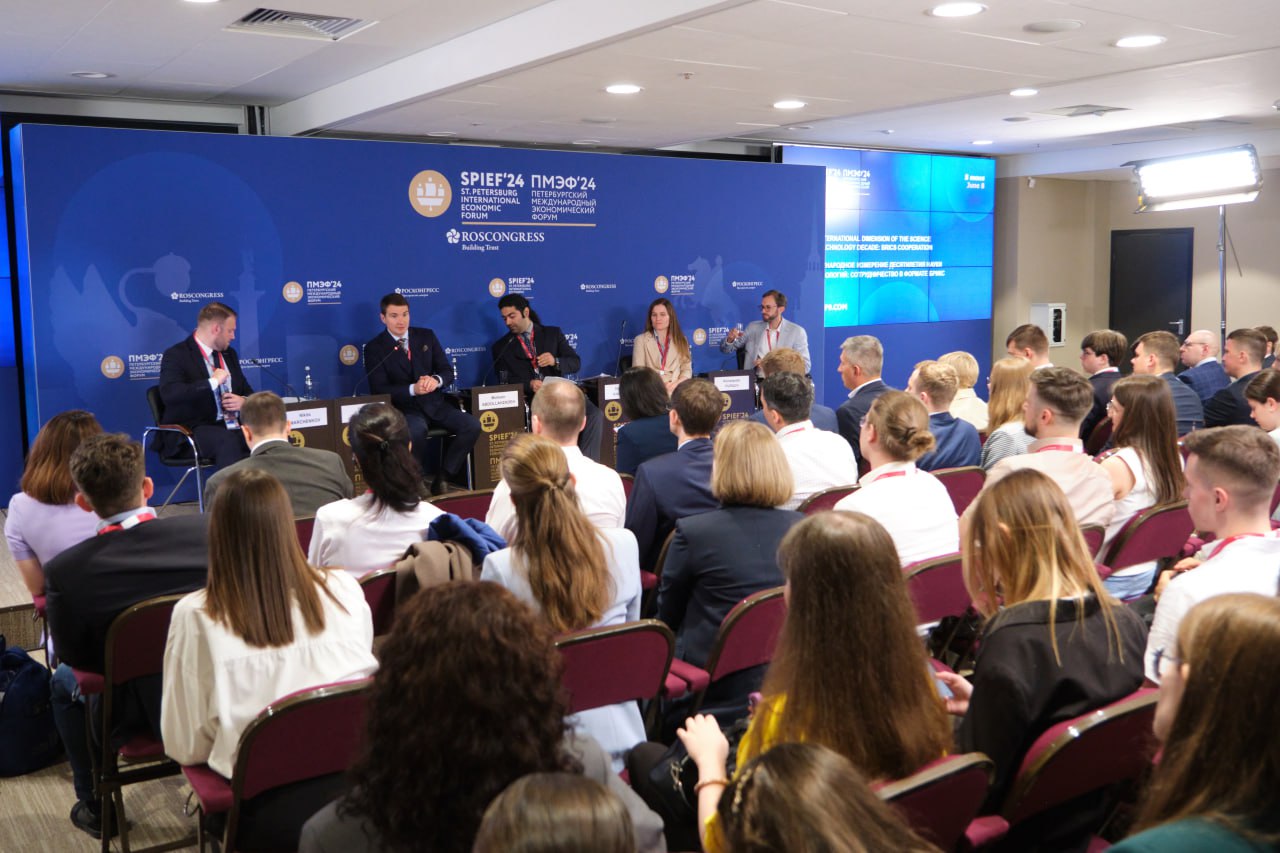The session “The International Dimension of Science and Technology decade: BRICS cooperation” was held on June 8 as part of the SPIEF Youth Program.
This year Russia is chairing the BRICS group. It is a major event that opens up opportunities to ensure productive international cooperation, implement new initiatives and strengthen ties in the international arena.
The SPIEF Youth Program featured a session on the role of the of Science and Technology decade in bringing together young scientists, including those from BRICS countries. During the event the experts discussed the role the BRICS format in implementing the cooperation potential between young scientists and innovators.
The session was moderated by Nikita Marchenkov, Chairman of the Coordinating Council for Youth Affairs in the Scientific and Educational Spheres of the Presidential Council of the Russian Federation for Science and Education and the head of the Kurchatov Complex for Synchrotron-Neutron Research.
 |
 |
Denis Sekirinsky, deputy Minister of Science and Higher Education of the Russian Federation, opened the discussion by emphasizing that Russia is actively developing S&T cooperation as a part of the National Science and Technology Decade. He underscored the significance of seeking new formats for international cooperation in the S&T area. To achieve this goal Russia is actively creating platforms for multidisciplinary communication. At the Young Scientists Congress and the BRICS Young Scientist Forum talented researchers, engineers, and entrepreneurs in technological fields have the opportunity to share the results of their work and take part in joint initiatives.
During her presentation Ekaterina Khlunova, deputy Director for BRICS, STI Cooperation, the International Centre for Innovations in Science, Technology and Education, outlined the architecture of BRICS cooperation in science, technology, and innovation, with a special focus on mechanisms of collaboration and the youth scientific community. She highlighted two key events: the BRICS Young Scientist Forum and the BRICS Young Innovator Prize.
 |
 |
“The annual hosting of these events since 2016 has enabled the formation of a substantial pool of talented young researchers, which has served as the base for the establishment of new scientific teams and subsequent joint publications and research projects” – highlighted Ekaterina Khlunova. The expert also emphasized another active mechanism of cooperation – the BRICS Science, Technology, and Innovation Framework Programme, which supports joint research projects among BRICS countries across various thematic areas.
During the session experts explored the development of initiatives aimed at uniting young researchers from BRICS countries, prioritizing the growth of youth science, and popularizing scientific knowledge. The panelists discussed the relevance and importance of forming a community of young scientists and innovators. The discussion was of particular importance as in 2024 Russia was passed the baton of the BRICS chairmanship.
The participants at the event underscored the notion that there should be no boundaries in science. To achieve effectiveness in both competition and cooperation, it is crucial for the BRICS nations to find common ground with one another, and to do so, they must strive for outstanding results.
The session was also attended by Mohsen Abdollahzadeh Aghbolagh, Associate Professor of the Information Technology Department of the Baikal BRICS School of the Irkutsk National Research Technical University, Konstantin Fursov, Associate Professor of the ITMO University and Scientific Curator of the Exhibition “Decade of Science and Technology” as Part of the Exhibition-Forum “Russia”, Tao He, Professor at Shanghai Advanced Research Institute of the Chinese Academy of Sciences, Alexey Volkov, Advisor to the Director of the Institute of Petrochemical Synthesis of the Russian Academy of Sciences, Alexander Dvoinikov, Acting Director General of the Directorate of Scientific and Technical Programs, Ekaterina Rakhmankina, Advisor to the Deputy Director General for Science and Strategy of the State Atomic Energy Corporation “Rosatom” and Dmitry Savkin, Vice-Rector of the Moscow Engineering Physics Institute.
